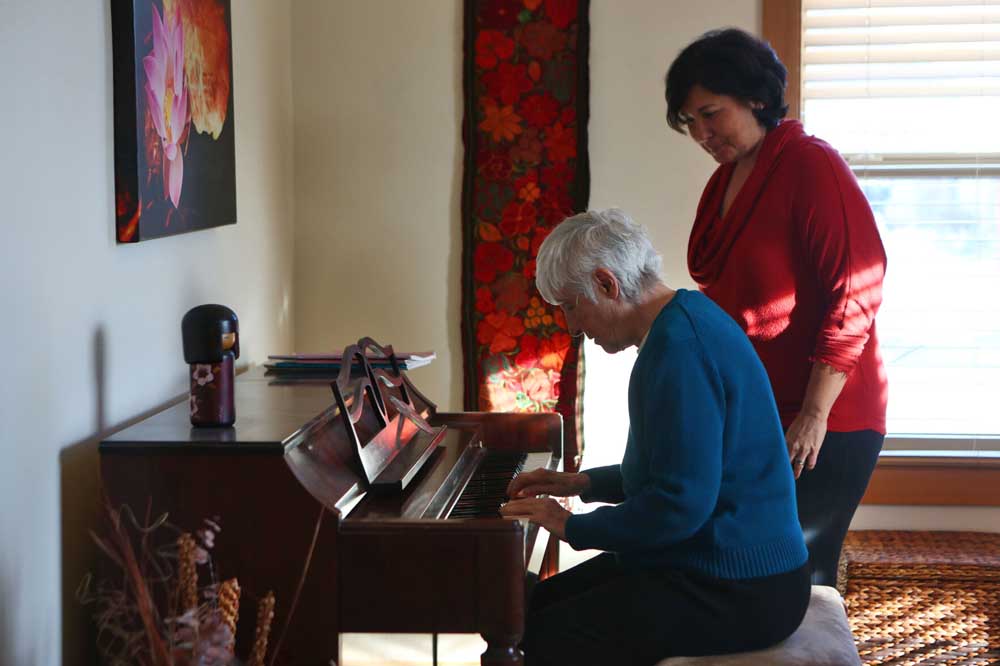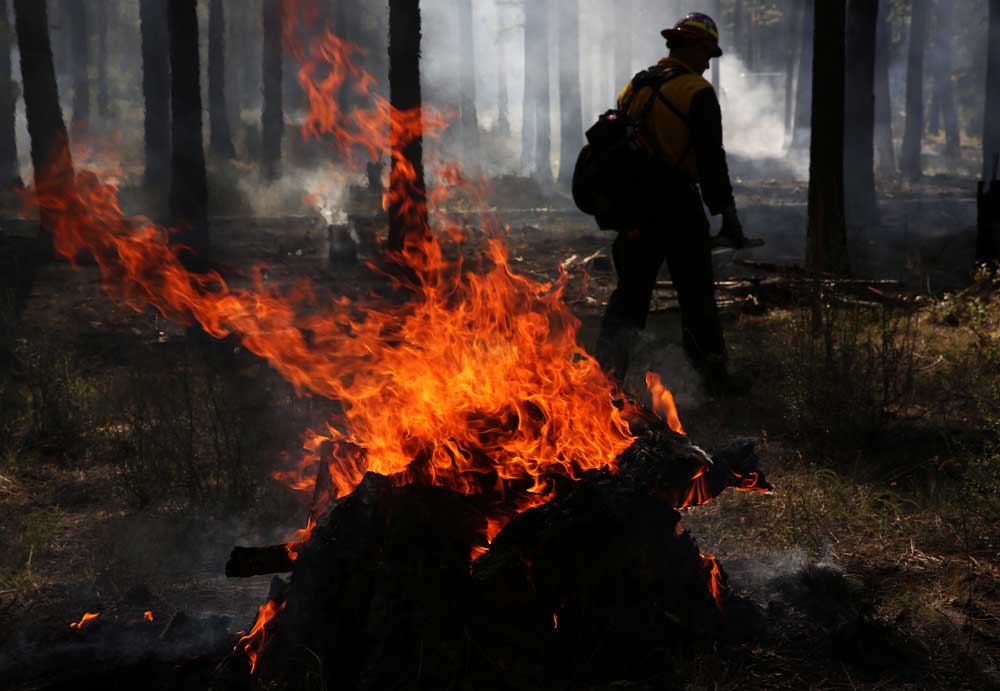Seniors with dementia still struggle with pandemic impacts
Published 12:30 am Friday, January 6, 2023

- Judy Kubota plays piano in her Bend home as her daughter, Kecia Kubota, watches. Judy, 83, has dementia and Kecia helps care for her. Judy taught piano lessons and still plays songs from memory on her piano.
Sunlight streamed into Judy Kubota’s piano room on Dec. 15, her fingers easily dancing across the keys after a lifetime of playing and teaching. Emotion was scrawled across her face as music filled the small room.
Her daughter, Kecia, stood next to her smiling. Dementia may have taken some of Judy’s memories, but it didn’t take her muscle memory or love of music.
“I just love it,” Judy said.
Nearly three years since COVID-19 tore across the United States, seniors like Judy, 83, are still feeling the effects the pandemic had on their bodies and their minds.
Kecia said the pandemic affected everyone, but that it was especially hard for seniors and those suffering from dementia and Alzheimer’s — the most common type of dementia, which in turn is an umbrella term for memory loss and cognitive decline.
When they go for drives or to restaurants, they’re still cautious despite currently low COVID-19 transmission numbers.
“We are still just more hesitant,” Kecia said, “despite knowing how important social interactions are.”
Gaye Thompson takes care of her 97-year-old mother, Olive, full-time in Culver. Olive has dementia and Gaye said it’s still a struggle despite low transmission numbers.
“I do take precautions still because I have to,” Thompson said. “…I don’t want to take (COVID-19) home to my mom.”
Gaye, who herself has a compromised immune system from a recent battle with cancer, wears a mask in public, uses hand sanitizer and washes her hands after going out. She gives Olive the option to wear a mask, but most of the time she won’t wear it — and doesn’t always remember why her daughter does.
They try to keep their distance from sick people and ensure others are vaccinated for gatherings like for her mother’s recent 97th birthday party.
“I think it’s pretty much a new normal now,” she said.
For Kecia, the pandemic’s isolation played an outsized role in their new normal. Judy still feels the pandemic isolation despite excursions, attending Sunday church service and daily visits from Kecia now that restrictions have been lifted.
The isolation, Kecia said, has made it more difficult for Judy to spend time in public. She is sometimes shocked and overwhelmed by how many people are out and about — such as over the summer when they visited downtown Bend.
“I do feel in my heart that her dementia declined more rapidly due to the isolation. That’s been a very difficult thing to sort of realize,” Kecia said. “Trying to protect her from a terrible disease exacerbated another one.”
Kecia’s intuition has a ring of truth to it. According to Angela Stewart, assistant executive director of Touchmark at Mount Bachelor Village — a memory care and assisted living community in Bend — the isolation seniors faced during the pandemic may have sped up the natural aging process and hastened the onset of dementia.
“Loneliness and isolation are not healthy,” Stewart said. “They’re as bad as smoking 15 cigarettes a day.”
“For a person with dementia, that social aspect of life is so important,” said Denise Brown, founder of The Caregiving Years Training Academy — a national organization focused on caregiver education. “We all want to connect with someone… we all crave that feeling that we belong.”
Additionally, if someone with dementia or Alzheimer’s contracts COVID-19, it can make it more difficult for them to cope with stimuli and further add to the disease’s confusion.
“COVID-19 attacks brain cells so it adds a level of delirium to dementia,” said Stewart.
Stewart added that people with dementia are more prone to contracting COVID-19 since they may not remember to wash their hands, isolate or wear masks because they’re simply unaware of the virus — adding to caregiver difficulties.
“There’s just more and more pressure to keep people at home,” said Lauren Herman, a dementia care specialist and consultant. “It’s definitely not back to where it was pre-COVID but certainly a lot better than it was in the height of things.”









